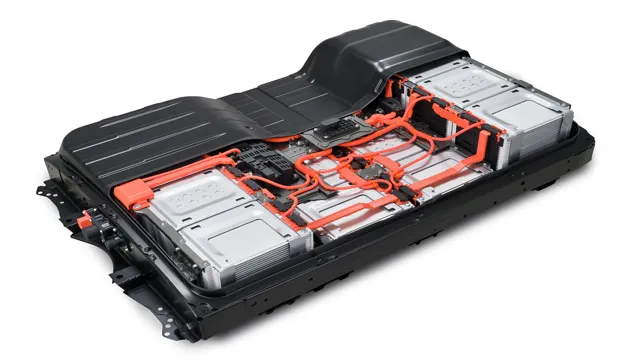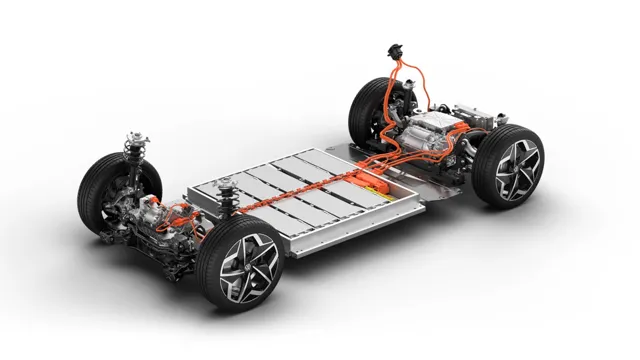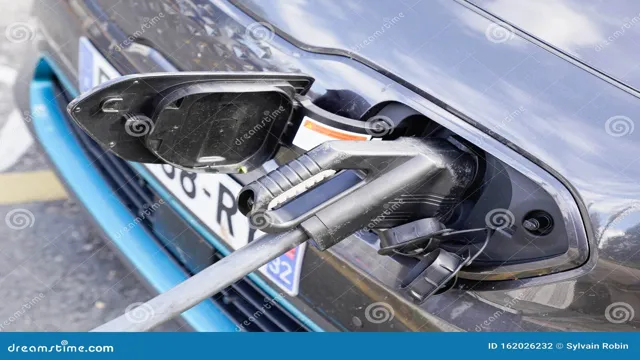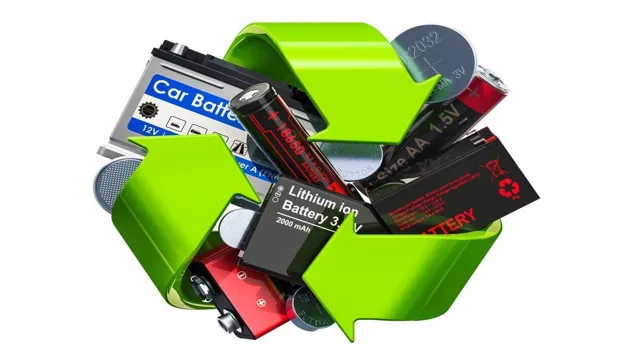Unleashing the Power: Exploring the Latest Batteries used in Electric Cars
Electric vehicles have taken the modern world by storm, and the biggest challenge for their widespread adoption has always been their battery life. That is, until now. With the battery technology that has emerged in recent years, the battery revolution is set to power electric cars to greater heights and make them more competitive than ever before.
It is evident in the rising number of automakers investing in electric vehicle battery technology. The world is moving towards a sustainable future, and electric cars powered by cutting-edge batteries are leading the way. But what is driving this battery revolution? What are the benefits of the latest battery technology, and what should we expect in the future? Join me as we explore the fascinating world of electric vehicle batteries and why they are essential for powering the future of transport.
Overview of Battery Usage in Electric Cars
The battery used in electric cars is a crucial component that allows these vehicles to operate on electricity rather than gas. Most electric cars use rechargeable lithium-ion batteries, which are lightweight and have a relatively high energy density. The batteries are usually located in the undercarriage of the vehicle, providing a low center of gravity that helps improve stability and handling.
Electric car batteries rely on a process of charging and discharging, wherein the car draws energy from the battery to power the electric motor, and then regenerates energy back into the battery when braking or coasting. While modern electric car batteries have come a long way in terms of range and lifespan, there is still room for improvement. Battery technology is constantly evolving, and researchers are working to develop longer-lasting, more efficient batteries that are cheaper to manufacture.
As the popularity of electric cars continues to grow, we can expect to see significant advancements in battery technology over the coming years.
Types of Batteries Used in EVs
Electric vehicles (EVs) are becoming increasingly popular due to their low cost of operation and zero emissions. One of the most critical components of an electric car is its battery, which powers the motor and propels the vehicle. The type of battery used in EVs can vary, but the most common are lithium-ion (Li-ion) batteries.
These batteries have a high energy density, which means they can store a lot of energy in a small package. They are also lightweight, making them an ideal choice for EVs that require portability. Other types of batteries used in EVs include lead-acid, nickel-metal hydride, and solid-state batteries.
Each battery type has its own advantages and disadvantages, such as cost, energy density, charging time, and lifespan. As the popularity of EVs continues to grow, battery technology will continue to improve, providing a more extended range, faster charging times, and more energy-efficient options for consumers.

How Batteries Power EVs
Electric vehicles rely on batteries to power their engines. Lithium-ion batteries are the most commonly used type, as they are lightweight but offer high energy density and long cycle life. These batteries work by using a chemical reaction to create electrons, which flow through a circuit to power the electric motor.
When the battery is charged, lithium ions flow from the cathode to the anode, and when discharged, they flow from anode to cathode. The battery management system controls the charging and discharging of the battery to ensure it operates safely and efficiently. Although batteries have come a long way in terms of capacity and charging time, they still have limitations, such as the need for frequent charging and limited driving range.
Nevertheless, with ongoing research and development, battery technology is continually improving, and electric vehicles are becoming an increasingly viable option for environmentally-conscious drivers.
Pros and Cons of EV Batteries
The battery used in electric cars is an essential component that powers the vehicle. While EV batteries have several benefits such as lower fuel costs, reduced greenhouse gas emissions, and no pollutants during operation, it is not without its drawbacks. One significant disadvantage is the limited range of EV batteries.
Although this has improved significantly with newer models, drivers must still plan their trips carefully and consider charging stations. The batteries used in electric cars are also expensive compared to traditional car batteries and have a limited lifespan, typically around 8-10 years. However, advancements in technology and increased demand have led to a decrease in the cost of EV batteries in recent years.
Overall, the pros of using EV batteries outweigh the cons, with improved technology and infrastructure continuously making electric cars a viable and accessible alternative to traditional gas-powered vehicles.
Advantages of EV Batteries
EV batteries have become increasingly popular in the recent past, mainly due to their numerous advantages. One of the standout benefits of EV batteries is their ability to reduce air pollution and carbon emissions significantly. Unlike traditional fossil fuel-burning vehicles, electric vehicles do not emit any tailpipe pollutants, making them the perfect solution for areas struggling with air quality issues.
Another significant advantage of EV batteries is their cost-effectiveness over time. Although electric vehicles are more expensive than traditional cars, their long-term savings on fuel and maintenance outweigh the initial cost. Moreover, electric vehicles have fewer moving parts, which means that they require less maintenance than their traditional counterparts.
However, one downside of EV batteries is their limited range. Most electric vehicles can only travel for a few hundred miles before needing a recharge, which might not be practical for some drivers. Nonetheless, with the advancement in battery technology, this challenge is likely to be addressed soon, making electric vehicles a more viable long-distance travel option.
Challenges of EV Batteries
When it comes to electric vehicle (EV) batteries, there are certainly pros and cons to consider. One major benefit is their low environmental impact compared to traditional gasoline-powered cars. However, batteries do have a finite lifespan and eventually need to be replaced, which can be expensive and time-consuming.
Additionally, there is a risk of fire or explosion if a battery is damaged or improperly charged. It’s important to consider the overall cost and safety factors before making the switch to an EV. That being said, as technology continues to advance, it’s likely that the amount of charging time and range of EV batteries will improve over time, making them an even more viable option for environmentally-conscious drivers.
Battery Lifespan and Replacement
When it comes to electric vehicle (EV) batteries, it’s important to consider their lifespan and the potential for replacement. On the one hand, EV batteries have the potential to last much longer than traditional car batteries, with some manufacturers claiming they can last up to 20 years. Plus, since EVs have fewer moving parts than gasoline-powered cars, there are fewer things that can go wrong with the battery in the first place.
However, there are some downsides to consider as well. For one thing, even the best EV batteries will eventually need to be replaced, and this can be a costly proposition. Additionally, some EV batteries may not perform as well in extreme temperatures or after repeated fast charging cycles, which could affect their overall lifespan.
Ultimately, the pros and cons of EV batteries will depend on a variety of factors, including the make and model of the car, the driving conditions, and the charging habits of the owner. But as EV technology continues to improve, we can expect to see even longer-lasting batteries that are more affordable to replace when the time comes.
State of the EV Battery Industry
The electric vehicle battery industry has been rapidly growing, and the demand for these batteries is only increasing. The battery used in electric cars is a crucial component, as it determines the driving range and overall performance of the vehicle. As technology advances, electric car batteries are becoming more efficient and affordable.
With the push towards renewable energy and cleaner transportation, the demand for these batteries is expected to continue to rise. However, there are still some challenges that need to be addressed, such as the limited availability of raw materials and concerns about the environmental impact of battery disposal. Nevertheless, the future looks bright for the EV battery industry, as companies continue to innovate and improve upon existing technology.
Emerging Battery Technologies
As EV technology continues to evolve, so does the demand for better battery technology. With growing concerns around climate change, the push for electric vehicles has never been more significant. The state of the EV battery industry reflects this fervor, with companies, researchers, and governments globally pouring resources into developing better batteries.
The primary goal is to have batteries that are more efficient, lighter, and have longer ranges. Additionally, there is a need for cost-effective and sustainable ways to produce these batteries. While traditional lithium-ion batteries remain the most popular EV battery technology, advancements in solid-state, lithium-sulfur, and flow batteries hold promise as emerging technologies of the future.
With innovation and collaboration from all sectors, the EV battery industry will continue to grow and meet the demand for cleaner, better transportation solutions.
Manufacturers and Suppliers of EV Batteries
The state of the EV battery industry is constantly evolving as manufacturers and suppliers strive to meet the increasing demand for green energy solutions. With the rise of electric vehicle adoption, battery manufacturers are challenged to develop batteries that have high energy density, longer lifespan, and shorter charging times. Companies such as Tesla, Panasonic, LG Chem, and CATL are at the forefront of battery production, continuously innovating and improving their battery technology.
Thanks to these efforts, electric vehicles are becoming more accessible and affordable, making them a popular choice for environmentally conscious consumers. Despite this progress, there is still a long way to go in terms of perfecting EV batteries. However, with the benefits of electric vehicles clear, manufacturers and suppliers are keen to invest in research and development of the next-generation battery technologies that will drive the industry forward.
Future of EV Batteries
Battery technology is evolving at a rapid pace, and electric vehicle (EV) batteries are no exception. The battery used in electric cars is undergoing significant improvements in terms of energy density, charging time, and cost. Engineers are experimenting with different materials and designs to increase the energy storage capacity of EV batteries and make them more durable and affordable.
Lithium-ion batteries have been the go-to choice for EVs, but alternatives such as solid-state batteries and flow batteries are emerging as potential options. Solid-state batteries have a higher energy density and can store more energy than lithium-ion batteries. Flow batteries, on the other hand, can be charged quickly and are ideal for commercial applications.
Ultimately, the future of EV batteries will be characterized by increased efficiency, lower costs, and better performance, making electric vehicles more practical and accessible for consumers.
Conclusion
In conclusion, the battery used in electric cars is the life force that powers the revolution for a sustainable future. Just like a superhero’s power source, this essential component stores energy that keeps electric vehicles moving efficiently and quietly, leaving behind a smaller environmental footprint. With every mile traveled, these batteries prove that efficient and clean energy is the way of the future, and as technology advances, we can only expect more electrifying innovations to come.
“
FAQs
What types of batteries are used in electric cars?
Lithium-ion batteries are commonly used in electric cars due to their high energy density and long lifespan.
How long do electric car batteries typically last?
Electric car batteries can typically last for around 8-10 years or 100,000-200,000 miles, but this can vary depending on usage and maintenance.
Are electric car batteries recyclable?
Yes, most electric car batteries are recyclable. Recycling not only reduces waste but also recovers valuable metals like lithium and cobalt.
How long does it take to charge an electric car battery?
The charging time for an electric car battery depends on the size of the battery and the charging station used. Level 2 chargers can take around 4-8 hours for a full charge, while DC fast chargers can provide an 80% charge in 30-40 minutes.






